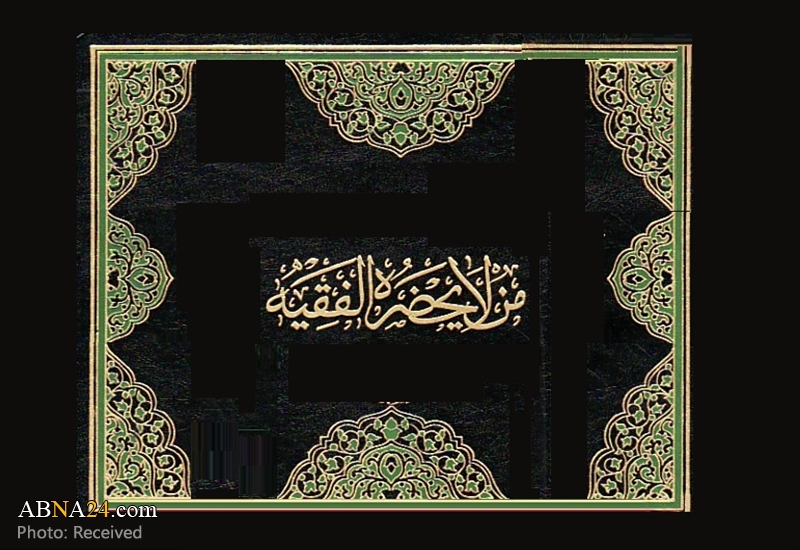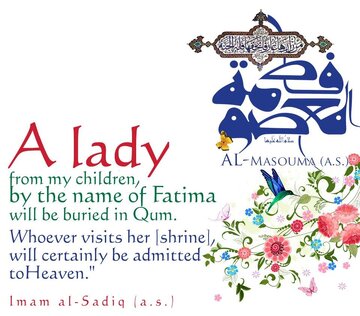(AhlulBayt News Agency) - According to the report from the source WikShia, the book “Kitâb Man lâ yahduruhu Al-Faqîh” (in arabic: کتابُ مَن لایحْضُرُه الفَقیه which means “The book of one who does not have access to the jurisconsult) is the second of the four principal hadith books of Shiite Imamites, whose author is Sheikh Saduq (died in 381 AH). This book, which is a compilation of hadiths, is designed to collect authentic and reliable hadiths to meet the religious needs of those who do not have access to jurisconsults. “Man lâ yahduruhu Al-Faqîh” is the most important and prestigious work of Sheikh Saduq. The style of his writing is the same style reputed in the early Islamic centuries where the Shiite jurisconsults were content only to report quotes and sayings of the Imams (a.s.), without further explications. In this book, about 6000 hadiths are collected and, contrary to what is found in Al Kafî, it contains only jurisprudential narrations. The Shiite jurisconsults have given this book special attention and they still do, they have written several commentaries on this book. The most famous commentary is “Rawdhat-ol-Motaquine” written by Majlissi the first.
Sheikh Saduq (r.a.) in the introduction of his book “Man lâ yahduruhu Al-Faqîh” expresses the motive that pushed him to write it, a part of which is adapted and rewritten recently based on the book “Detailed Bibliography of Islamic Sects” (by Mohammad Reza Zamiri, pages 350-351), where he narrates:
During a trip to the land of Balkh, by the grace of Allah the Almighty, I met a holy and pious person without equal and unique in his time. And this acquaintance will always bring me joy and honor and pride. At that time, I benefited from his company, because dialogue with him gave me a feeling of tranquility, joy and glory. He was a learned, pious, committed person, very much attached to the religion, born in a noble and dignified family, who where descendants of a virtuous ancestry, and with his excellent ethics and his valuable and commendable attributes such as solemnity, modesty, dignity, chastity and generosity, had multiplied his merits. This person was, Abu Abdullah, Mohammad ibn Hassan ibn Ishaq ibn Hassan ibn Hussein ibn Ishaq ibn Musa ibn Ja’far ibn Mohammad ibn Ali ibn Hussein ibn Ali ibn Abi Talib (a.s.), known as Seyed Ne’mat.
One day, Sayed Ne’mat told me: Mohammed ibn Zakaria Razi, the famous physician, wrote a medical book for those who when they need a doctor can not find one, and has titled it “Man La Yahduruhu al-Tabib” (meaning: The one who does not have access to the doctor), and this book despite its small volume, is complete, adequate and sufficient in its subject, and very useful to everyone as much as they need it. He also asked me to write a book on jurisprudence, Islamic law and religious precepts in a comprehensive and universal way that ensures the approval and trust of people. And all they need in terms of jurisprudence, rules, Shari’a, lawful and unlawful issues must be mentioned, so that people can follow the instructions with reference to it, and all of them can read it and practice their religion according to its instructions, copy it and share it with others, and they will all be associated in its divine reward.
Sayed Ne’mat expressed these remarks at the moment that he himself had full knowledge of all the books I had written up to that time, which numbered around 245 volumes, of which he had copied the majority which he himself had heard directly of me and held the authorization to transmit them. But, despite everything, the feeling of the need to write such a book in jurisprudence (the book “Man lâ yahduruhu Al-Faqîh”) existed, and his speech reminded me of it.
I, too, because I knew him well, and I considered him a competent and qualified person, and I also felt the need to write such a book, and moreover, I saw his request to write such a book appropriate, then accepted his proposal. And I wrote this book by removing the “sanad” chains of transmission of hadiths. Although mentioning the “sanad of Rijal al-Hadith” (chain of transmission of hadiths) has many advantages, but in this book I have based myself on abbreviation and utility for all people. Because I did not want to write in this book, as in my previous books or as other scholars in their books, all the hadiths heard from their antecedents. But the purpose of writing this book is basically to ensure that all the narratives are authentic and their chains of transmission to infallible Imams (as) are reliable, to the extent that I can deduce from them precepts and fatwas, and I have the intimate conviction that these hadiths and this act are a legitimate justification between me and the Lord – the all exalted -.
/129
28 March 2018 - 06:06
News ID: 887213

What motivated Sheikh al-Saduq to compile invaluable book “Man la yahduruhu Al-Faqih”?




